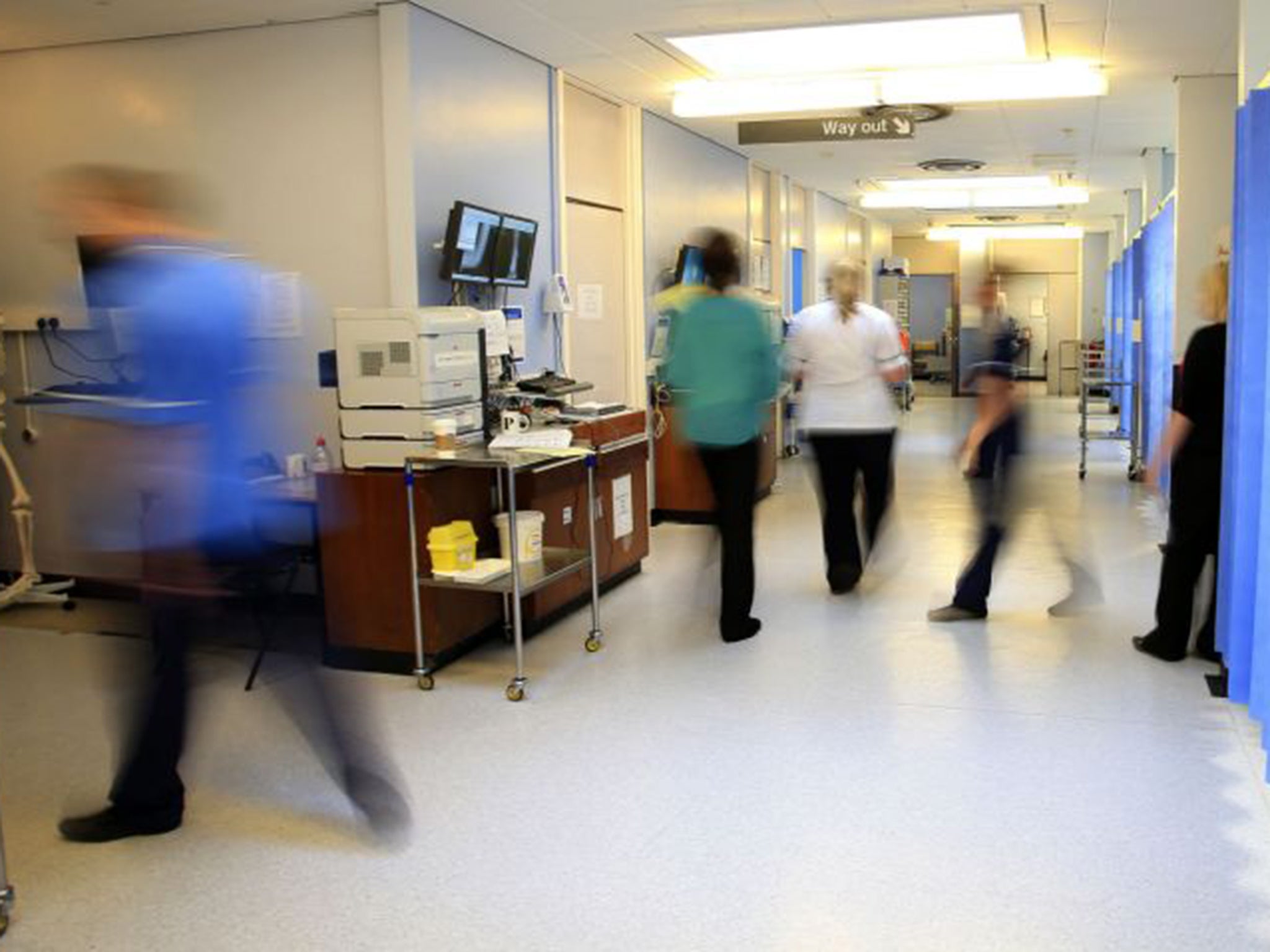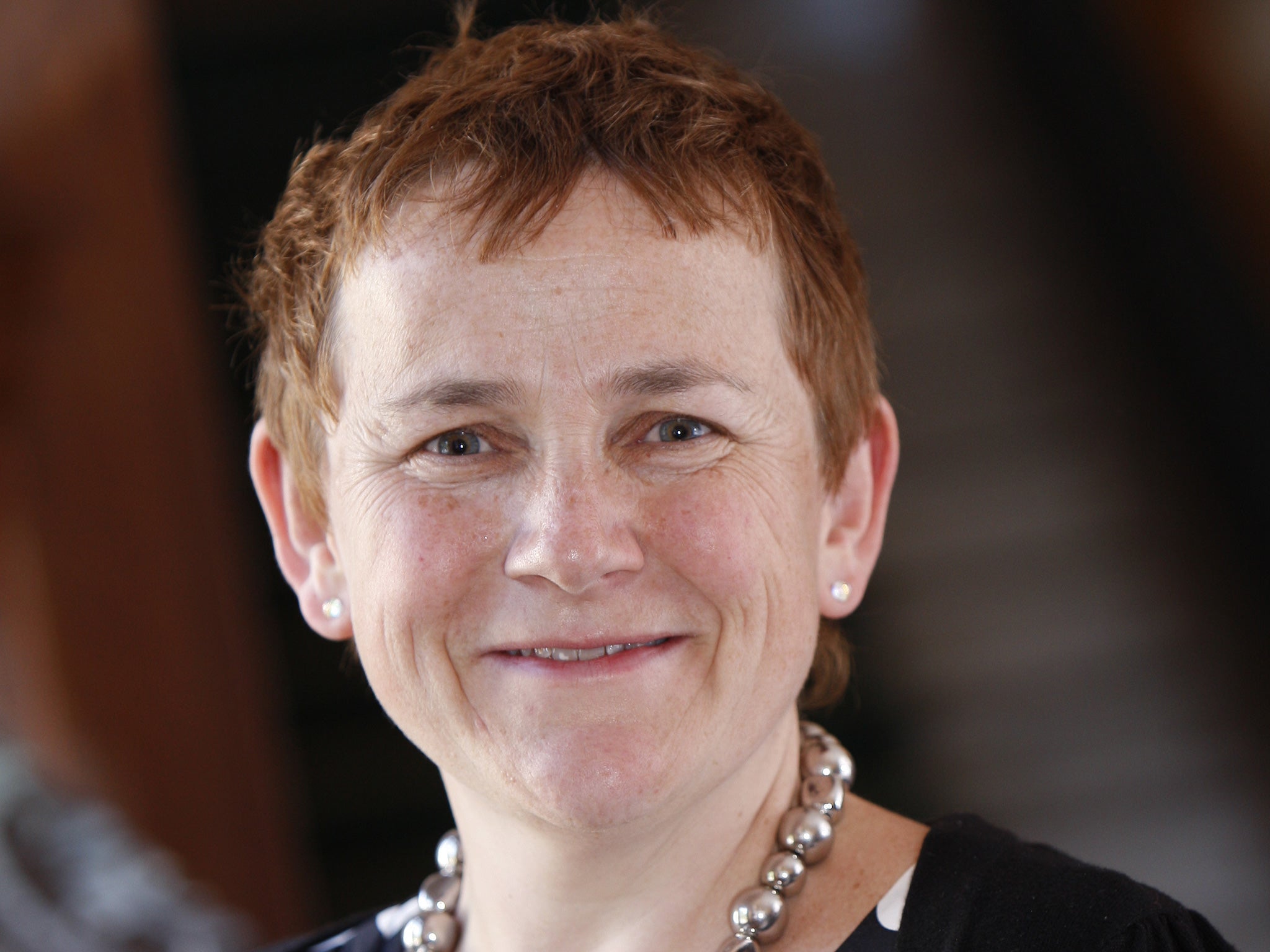Patient discontent with health and care ‘being masked’ by fear of complaining
Healthwatch England says official satisfaction figures don’t mirror its more in-depth surveys

Your support helps us to tell the story
From reproductive rights to climate change to Big Tech, The Independent is on the ground when the story is developing. Whether it's investigating the financials of Elon Musk's pro-Trump PAC or producing our latest documentary, 'The A Word', which shines a light on the American women fighting for reproductive rights, we know how important it is to parse out the facts from the messaging.
At such a critical moment in US history, we need reporters on the ground. Your donation allows us to keep sending journalists to speak to both sides of the story.
The Independent is trusted by Americans across the entire political spectrum. And unlike many other quality news outlets, we choose not to lock Americans out of our reporting and analysis with paywalls. We believe quality journalism should be available to everyone, paid for by those who can afford it.
Your support makes all the difference.The true scale of public discontent with the NHS and social care is being masked by the genuine fear of patients and vulnerable elderly people that they will face reprisals if they report their poor experiences, according to the head of Healthwatch England.
Research conducted by the patient rights group has established that a quarter of people would not complain, even if they were suffering or in pain, “because they think it will have an impact on their ongoing health and care”.
Katherine Rake, the group’s chief executive, said the isolation and trepidation of patients made them reluctant to blow the whistle, despite campaigns encouraging people to come forward. “We’ve got very vulnerable adults with very little protection in the system,” she told The Independent.
“It has a particular importance for people receiving social care and domiciliary care where it’s behind closed doors. If somebody is coming in and washing and bathing or feeding you, and you’re pretty frail, are you going to say, ‘I don’t think this is right’?”
NHS satisfaction ratings published earlier this week appeared to grant the service a clean bill of health. But separate Healthwatch England research found that, when further questions were asked, 94 per cent of patients agreed that the health and care system needed to change, and one in three said they had personally experienced a circumstance where they had worried about the quality of care provided.
Dr Rake put the positive ratings down to public support for a health service that was “free at the point of use”, but said patients nevertheless felt “incredibly disempowered” and unable to raise their concerns with either doctors or carers.
“We all feel vulnerable at some point and we all feel voiceless and powerless,” she said. “I had a personal experience of this this time last year when my dad went into hospital for a very big operation and things didn’t go according to plan. I’m not known for being shy and retiring and I literally remember steeling myself to raise a concern to talk to people who were many years my junior.
“All sorts of people who are incredibly experienced and understand health and social care very articulately have given me their story and it’s always the same story.”
Speaking to The Independent, Dr Rake said the fear of making a complaint was compounded by the fact that they so often fell on deaf ears. Patients are confused by the 70 different organisations they could use to register their concerns, and only half are ever acknowledged with an apology.
“One of the things we found which still I find deeply troubling and shocking is that 50 per cent of people never receive an apology. It can’t be right,” Dr Rake said.
“We’re not going to break this culture until, if you do steel yourself, if you are brave enough to step out of that moment where you feel terrified and fearful, you need to know that there’s been an impact. Quite often what we hear from people is that they want to know that it won’t happen to others – that’s a very honourable sentiment and we should do it justice.”
Dr Rake, who said Healthwatch England had been designed to be “the eyes and ears of people who use those services”, warned of a mismatch of priorities between patients and Whitehall mandarins managing health and social care.
Local Healthwatch groups informed Dr Rake’s office that they had received large numbers of complaints about people being unable to register with an NHS dentist.

When questioned, the government department responsible said there was no evidence of any issue with capacity in the dental service. Dr Rake’s team then called 300 dentists advertising as open to new patients, and found that in some areas as many as four in five were in fact refusing to take new registrations.
“I can’t remember a time when any secretary of state of any political persuasion made a big speech about dentists,” Dr Rake said. “But in terms of primary care it’s hugely important, because good dental health is hugely important to the rest of your health,”
Simple problems which might seem trivial, such as squeaky rubbish bins or a lack of parking spaces, can make a critical difference to how people feel about the health service but are often overlooked. “If you’re a patient that’s staying overnight in that ward with the bin that squeaks and keeps you awake it’s very important.
“I heard a terrible story of someone who had missed the last minutes of their dying father’s life because they were unable to get a space in the car park and had been trying to avoid paying enormous fees. That’s a real human consequence. For that person, that will be with them for the rest of their life.”
Whitehall’s grip on priorities extends further: Healthwatch warns of an outbreak of “groupthink” in government about the root causes of pressure on hospital emergency departments, with patients being blamed for turning up with non-critical conditions and expecting a 24-hour primary care service. In fact there is no evidence of that; most have either tried and failed to make appointments with their GP, or have been told to go to A&E by a clinician.
For Dr Rake, the answer to the crisis of confidence facing the NHS and social care could be solved by giving every patient the right to access and hold their own medical file. “It’s unimaginable that in other areas of our life we’d be operating without information. The notion that you’d have to phone up your bank and ask permission to find out what your balance is is absolutely [ridiculous],” she said.
Subscribe to Independent Premium to bookmark this article
Want to bookmark your favourite articles and stories to read or reference later? Start your Independent Premium subscription today.
Join our commenting forum
Join thought-provoking conversations, follow other Independent readers and see their replies
Comments